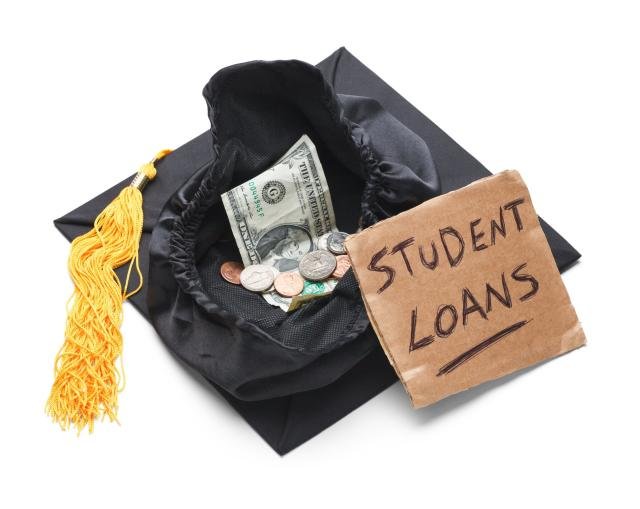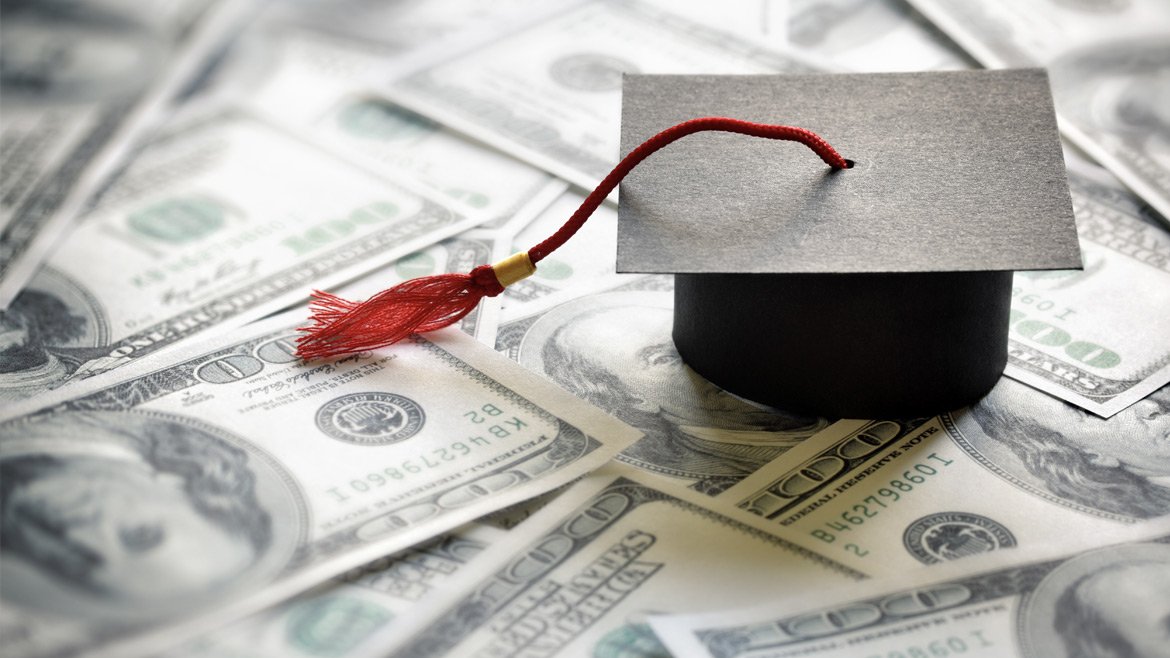Student loans debt collection is a reality many borrowers face when they fall behind on payments. Whether due to financial hardship, unemployment, or simply mismanagement of funds, defaulting on student loans can lead to serious consequences, including damaged credit, wage garnishment, and even legal action.
Understanding how student loan debt collection works, your rights as a borrower, and the options available to you can help you navigate this challenging situation. In this guide, we’ll explore key aspects of student loans debt collection, including whether student loans count as debt, how to handle unpaid student loans, and whether forgiveness programs can provide relief.
Do Student Loans Count as Debt?
Student loans are considered debt. Like any other loan, they represent money borrowed that must be repaid with interest. However, student loans differ from other types of debt in several ways. Unlike credit card debt or personal loans, student loans are often harder to discharge in bankruptcy.
Federal student loans also come with unique repayment options, such as income-driven repayment plans, which adjust monthly payments based on your earnings. Private student loans, on the other hand, function more like traditional loans with fixed repayment terms.
The Impact of Student Loan Debt on Your Finances
Carrying student loan debt affects your debt-to-income ratio, which lenders consider when you apply for a mortgage, car loan, or other credit. High student loan balances can make it harder to qualify for new credit or secure favourable interest rates. Additionally, missed payments or defaulting on student loans can severely damage your credit score, making future financial decisions more difficult.
Many borrowers feel trapped by student loans because they cannot be easily eliminated, even in financial hardship. While credit card debt can sometimes be negotiated or settled for less, student loans, especially federal ones, are rarely forgiven unless through specific government programs.
PEOPLE ALSO READ
What Is the Difference Between Secured and Unsecured Loans?
How Does Inflation Affect Loan Interest Rates?
Can You Use a Loan to Pay Off Other Debts?
How to Manage Loan Repayment During Financial Hardship

How to Deal with Student Loan Debt
If you’re struggling with student loans debt collection, there are steps you can take to regain control. Ignoring the problem will only make it worse, so it’s important to act quickly. Here are ways on how to deal with student loan debt:
1. Know Who Owns Your Debt
Federal student loans are managed by the U.S. Department of Education and assigned to loan servicers. Private student loans, however, are held by banks, credit unions, or other financial institutions. If your loans are in default, they may be transferred to a debt collection agency.
To find out who currently holds your debt:
Check the National Student Loan Data System (NSLDS) for federal loans.
Review your credit report for private loans
2. Explore Repayment Options
If you’re struggling to make payments, you may qualify for alternative repayment plans:
Federal Student Loan Repayment Plans
Income-Driven Repayment (IDR) Plans: Payments are based on your income and family size.
Graduated Repayment Plan: Payments start low and increase over time.
Extended Repayment Plan: Stretches repayment over 25 years, lowering monthly payments.
Private Student Loan Options
Private lenders don’t offer the same flexible plans as federal loans, but some may provide temporary forbearance or modified payment terms if you contact them early.
3. Avoid Default at All Costs
Defaulting on student loans leads to severe consequences, including:
Wage garnishment (up to 15% of disposable pay for federal loans).
Tax refund offsets (the government can seize your tax refund).
Collection fees (adding 20% or more to your debt).
Damaged credit (defaults stay on your report for years).
If you’re already in default, federal loans offer loan rehabilitation, a process where you make nine affordable payments over ten months to remove the default status.
4. Consider Loan Consolidation or Refinancing
Federal Loan Consolidation: Combines multiple federal loans into one, potentially lowering payments.
Private Refinancing: If you have good credit, refinancing with a private lender could reduce interest rates, but you’ll lose federal protections.
5. Seek Help from a Student Loan Counsellor
Nonprofit credit counselling agencies and student loan advisors can help you navigate repayment options and negotiate with lenders.
Can Student Loans Be Sent to Collections?
If you fall behind on payments, your student loans can end up in collections, but how this happens depends on whether your loans are federal or private.
Private Student Loans and Collections
Private lenders can sell your loan to a collection agency if you miss multiple payments. When you signed the loan agreement (promissory note), you agreed to terms that allow the lender to transfer your debt without your permission. Once sold, the collection agency takes over efforts to recover the money.
Federal Student Loans and Collections
The U.S. Department of Education doesn’t sell defaulted federal student loans to outside debt collectors. Instead, they assign them to the Default Resolution Group (DRG), a division that handles collections for the government. If your federal loans default, you’ll work directly with DRG to resolve the debt.
Consequences of Student Loans in Collection
Having your student loans sent to collections comes with serious financial and emotional consequences:
Added Fees: Collection costs (often 20% or more) get tacked onto your balance.
Credit Damage: A default stays on your credit report for seven years, making it harder to get approved for loans, apartments, or even jobs.
Legal Action: While collectors don’t always sue immediately, they can take you to court to garnish wages or seize tax refunds.
Mental Toll: The stress of dealing with collections can lead to anxiety, depression, and long-term emotional strain, sometimes lasting even after the debt is paid.
READ MORE
What is The Best Type of Loan for a Small Business?
How Does Identity Theft Affect Loans?
What Is a Fake Loan Offer and How to Identify It
Ways to Spot Personal Loan Scams and Protect Your Finances
How to Remove Student Loans from Collections
If your loans are already in collections, you still have options to resolve the debt and repair your financial standing.
1. Settle the Debt with a Lump Sum Payment
Some collection agencies (and the Department of Education for federal loans) may accept a settlement offer, where you pay a reduced amount to clear the debt. Federal loans may settle for less than the full balance, but you must pay the agreed amount within 90 days. Private loans may also negotiate settlements, but terms vary by lender.
2. Rehabilitate Your Federal Student Loans
Loan rehabilitation is one of the best ways to remove a federal student loan from default. You make nine affordable monthly payments (based on income) within ten months. After completing rehabilitation, the default status is removed from your credit report (though late payments may still appear). Collection fees are eliminated, and you regain access to benefits like income-driven repayment plans.
3. Consolidate Defaulted Federal Loans
A Direct Consolidation Loan allows you to combine defaulted federal loans into a new loan with a fresh repayment term.
You must either:
Agree to repay under an income-driven plan, OR
Make three consecutive on-time payments before consolidating.
Unlike rehabilitation, consolidation does not remove the default from your credit history, but it does stop collections.
4. Bankruptcy as a Last Resort
While it’s extremely difficult to discharge student loans in bankruptcy, it’s not impossible. You must prove undue hardship in court, which requires showing that:
Repayment would prevent you from maintaining a minimal standard of living.
Your financial hardship is likely to continue for a significant portion of the repayment period.
You’ve made good-faith efforts to repay before filing.
Even if approved, bankruptcy severely damages your credit for years.
Conclusion
Dealing with student loans debt collection can be overwhelming, but understanding your options makes a difference. Whether through repayment plans, consolidation, or forgiveness programs, there are ways to manage your debt and avoid long-term financial harm.
If you’re struggling, don’t wait, contact your loan servicer or a financial advisor to explore solutions before your loans go into collections. Taking action now can save you from greater stress down the road.
